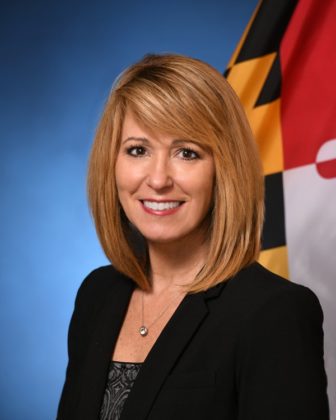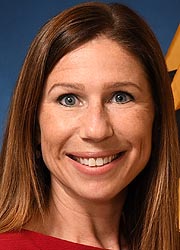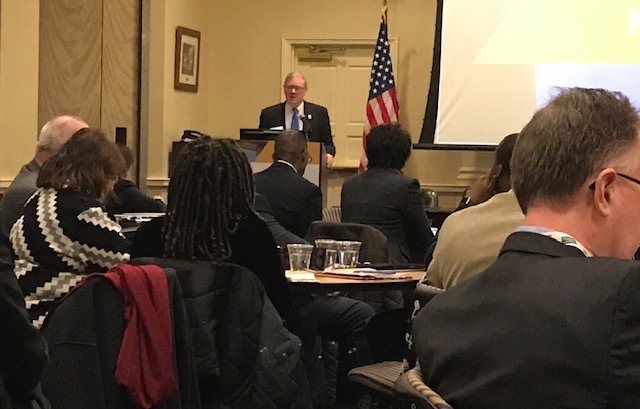@Bryan Renbaum
[email protected]
Bipartisan support for Maryland’s business community was on full display Wednesday in Annapolis at a conference hosted by the Maryland Chamber of Commerce where lawmakers and members of the Hogan administration touted plans to make the state more business-friendly.
Sens. Christopher West, R-Baltimore County, and Brian Feldman, D-Montgomery, are both members of the Senate “Small Business Jobs Working Group.” The General Assembly established the 12-member panel last year.
West said he will introduce legislation that would establish a two-year workgroup consisting of public and private entities to study changes in Maryland’s economy.
“The workgroup will be charged with exploring new and innovative strategies at attracting these businesses, assisting with their financial structuring, and training a 21st century workforce to operate them properly.”
Feldman, who is vice-chair of the Senate Finance Committee, said he will introduce legislation that would create a commission to study the state’s tax code.
“We have not done a full-blown review of our tax code in over thirty-some-odd years.”
Feldman said: “We’re basically operating under a tax code that was created in the late 1960s.” He said the commission would submit recommendations to the governor about how to modernize the tax code to make it both more practical in a “21st-century economy” and more competitive with neighboring states.
A hearing on the legislation is scheduled for next Wednesday in the Senate Budget and Taxation Committee.

Commerce Secretary Kelly Schulz
Commerce Secretary Kelly Schulz said the administration’s plan to rebuild the Howard Street Tunnel in Baltimore would help the state’s economy.
“This will be a huge boost to activity at the Port of Baltimore and is projected to generate more than $1 billion in personal and business revenues each year and create more than 7,200 permanent jobs.”
Hogan’s FY 2021 budget allocates $80 million for the project, which would enable double-stacked freight trains to use the tunnel.
Schulz emphasized that the budget allocates more than $47 million to encourage business development. She said the money is “spread out across many state agencies” and is meant to assist “new businesses” as well as businesses that “are quickly growing.”
Labor Secretary Tiffany Robinson said legislation that would increase the educational requirements for inmates would save taxpayer money by reducing recidivism and make inmates more attractive to employers upon their release.

Labor Secretary Tiffany Robinson
“We have found that inmates are currently falling behind and not meeting those goals because of the limited 120 days.”
Under current law inmates must attend 120 days of instruction to earn their high school diploma or GED. The legislation would extend the requirement to 240 days.
“This will give inmates the time they need to actually achieve their goals, earn their high school diploma … and build a more educated workforce that will be available to employers,” Robinson said.
As of August 2019, 3,122,900 Marylanders were employed, according to data provided by the Maryland Chamber of Commerce. The state’s unemployment rate was 3.6% in November 2019, according to the U.S. Department of Labor Statistics.
Wednesday’s conference, “Meet the State,” took place at the Lowe House Office Building across the street from the State House. Among the several dozen attendees were several Chamber of Commerce members.
Gov. Hogan campaigned on a pledge to make Maryland more business-friendly. As of September 2019, according to the Maryland Department of Commerce, more than 126,000 jobs have been created in the state under his tenure. Hogan assumed office in January 2015.
An estimated 32,000 jobs were created under the two-term O’Malley-Brown administration, according to the U.S. Bureau of Labor Statistics.




Recent Comments